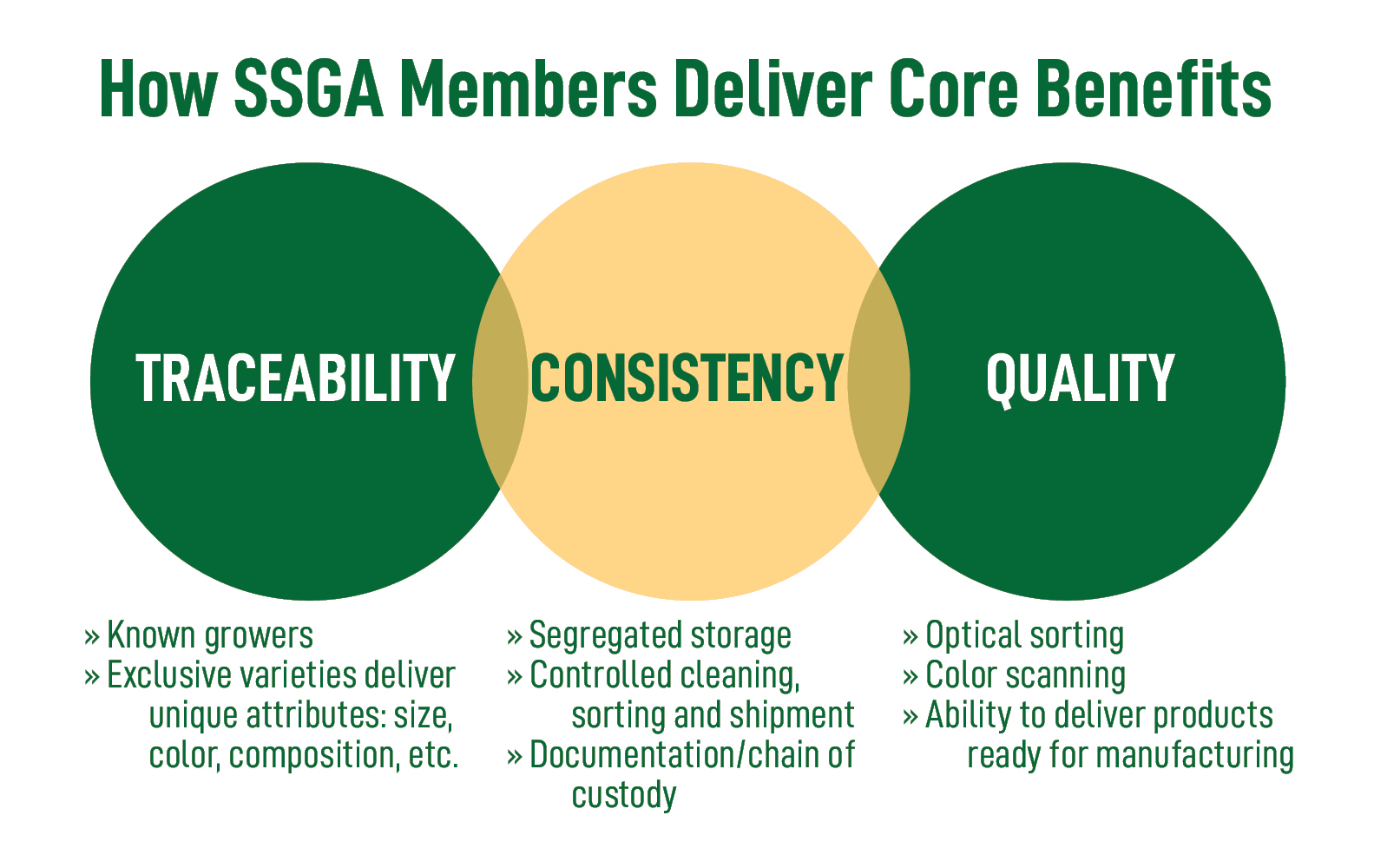What is Identity Preservation?
Identity preservation (IP) is a practice of maintaining segregation of a field crop raw material from pre-planting during the growing season, into handling/storage/delivery through to processing and distribution in order to deliver a specific contracted trait or quality to the end market. IP begins with the seed and can be continued as far through the supply chain as valuable to the end user.
The quality, consistency and safety of food depends on knowing, with certainty, the source of the ingredients used. In other words, traceability. It’s this traceability that is at the core of the IP process.
Identity preserved soya and specialty grains are traceable from their fields of origin throughout the process of production, processing, packaging and distribution.
IP crops inherently deliver a set of core attributes, which enable a number of primary benefits to food manufacturers. These primary benefits ultimately create economic benefits to the end user.
From seed to end user, IP practices segregate crops throughout the value chain, delivering a specific quality or trait to the end market. Those practices allow for open, transparent communication between supplier and customer, and that feedback benefits everyone along the way.
How do SSGA members deliver core benefits? They are known growers who can deliver exclusive varieties with unique attributes, such as size, color and composition, that are ready for manufacturing. They practice segregated storage, controlling cleaning, shipping, and there is documentation of chain of custody (traceability).
IP allows customers to order specifically what they need for the future so members can grow it today. IP products demand a premium, but traceable, consistent, quality results make it worthwhile for growers and customers alike.




